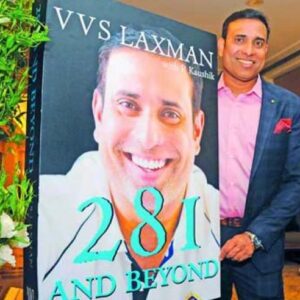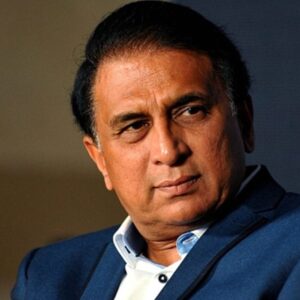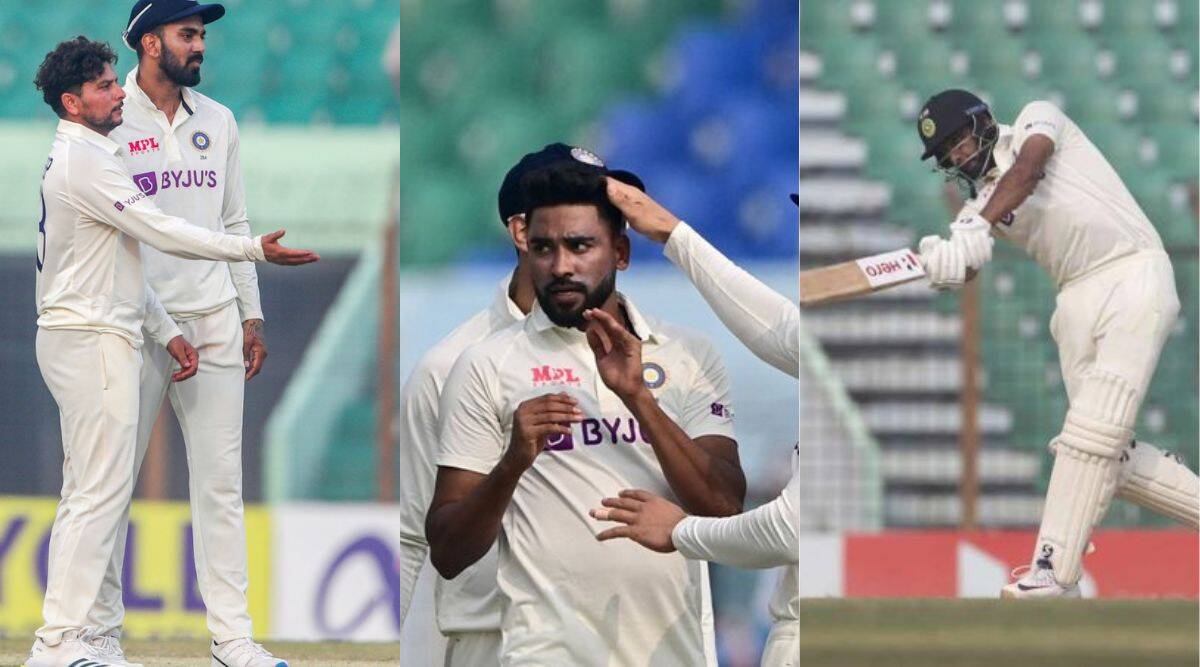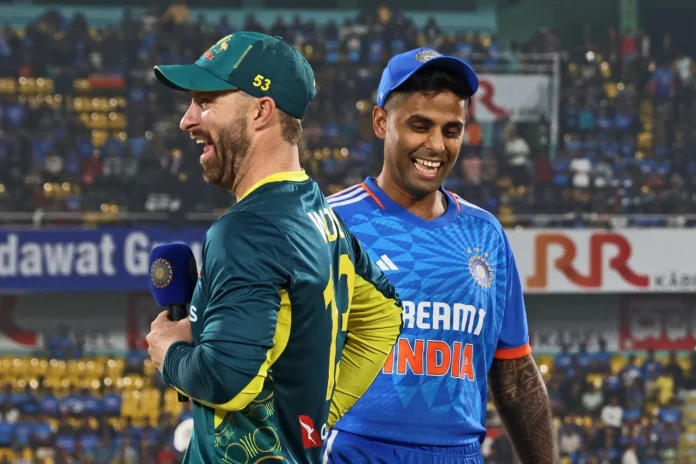I have read quite a few cricket autobiographies. Steve Waugh’s Out of my Comfort Zone is an absolute gem whereas I felt Geoffrey Boycott’s The Corridor of Certainty, given his experience in various walks of life, could have contributed more. Ricky Ponting was nice too. On the otherhand, you have Sachin Tendulkar’s Playing it my way, a complete disappointment. More than an autobiography, it reads as a collection of events. From the day he made his debut till he retired, it is just a collection of espncricinfo.com match reports. It was complete letdown. Ganguly’s is another that was a damp squib. Then we have V. V. S. Laxman’s 281 and Beyond. Reviewing VVS Laxman’s autobiography.
It is a lengthy book exacerbated by the fact that the font is pretty small. It really is a strain on the eyes. However, the entire book is easy paced. You do not have to turn to the dictionary for every sentence. The language is pretty simple but nice. Just short of 300 pages, Laxman has tried to recall as much as he can during his illustrious career.
The very first chapter
He starts off with the innings that defined him. The epic 281 at the Eden Gardens. An innings that announced Laxman to the world. John Wright asked Laxman not to remove his pads after the first innings because he will go in at the fall of the first wicket. In the previous test, India fared pretty poorly. Laxman visited Shirdi Sai Baba after the first test. At this stage, he was inconsistent and was dropped from the team often. Laxman has always been spiritual. He visited 2 temples in Hyderabad at his uncle’s suggestion.
He follows a certain process before any cricketing tour, visit his maternal grandparents, session at the St. John’s camp and a stint with his batting coach Ashok Singh. Laxman gives a hint of how the situation in the dressing room was before John Wright took over. Wright informed Laxman that from now on there will be no seniors and juniors.
The Calcutta game
Three days before the game, Laxman had a severe back problem. Badani would have replaced Laxman if he was ruled out but he felt better the next day. Andrew Leipus, the then physio who doubled up as fitness trainer, worked his magic on him. India were blown away in the first innings and during the 2nd time around, Ramesh, Das & Sachin all departed in quick succession. Laxman and Ganguly had a good partnership before Ganguly fell. In came Dravid who didn’t have any displeasure at having been demoted to number 6.
During the course of Laxman’s innings, Steve Waugh commented “now the young man must be thinking about endorsements”. It did not have any impact on either of them. Dravid and Laxman constantly egged each other. “Job not done” was the phrase when they batted. They wanted to keep the Australians on the field for a longtime so that drawing the game will be possible. Steve Waugh was at his attacking best. He was looking to take wickets rather than containing which helped the pair to score freely. By tea, the lead had grown to over 200. Laxman went past Gavaskar’s record of the highest individual score by an Indian. The rest is out there in the open.
About his childhood
Laxman writes about his childhood about how his parents encouraged him to follow his passion. He was in a confused state of mind during his adolescent years, whether to pursue medicine or to follow his passion but his parents were quite supportive of his choice. More than his parents, it was his uncle, Baba Krishna Mohan, who was instrumental in Laxman’s development. He realised Laxman’s potential and took him under his wings. He was a constant source of encouragement and it was with him, Laxman discussed about his game. Laxman also writes about his constant source of inspiration, The Bhagavadh Gita. During this period, he followed the three Ds, Discipline, Determination, Dedication.
During the early part of his career, he was asked to open the innings but found the going to be tough. It was a momentous decision that he took alongwith his uncle not to open the innings again though it may mean less opportunities in the middle order. It was a courageous decision by someone who was so young and who hasn’t really proved himself.
4 chapters dedicated to describe the road to no. 1
Throughout the book, Laxman writes about lack of communication throughout his career during the pre and post John Wright years. He is all praise for Wright for his communication skills and man management skills but also admits that his relationship with Wright was never the same after he was dropped from the squad for the 2003 ODI World Cup.
He had dedicated four chapters to describe the events that led the team to the coveted number one ranking. However, it was disappointing to read because all it contained was the scores and the series results. He did not write about how the group went about planning for the ascension, what transpired during the meetings? How confident were they about becoming the best team in the world? Basically, the behind the scenes is what was missing from the book. I wish he had allocated another 25 pages just to describe the events. These 4 chapters were nothing better than reading Tendulkar’s or Ganguly’s autobiography which was more or less match reports.
On his differences with Chappell
Laxman does not mince words when he writes about Greg Chappell. Indian cricket went through a torrid time under him. Laxman writes, “Brusque and abrasive, highly opinionated and rigid in his thinking, had no man-management skills and “quickly sowed further seeds of discontent in an already diffident team.”
Chappell wanted Laxman to open the innings which he had relinquished longtime ago but Chappell told him that it will be shame to be sitting at home at his age if he refused to open.
End of an illustrious career
Laxman had the chance to play in 10 Tests. All at home but his chose the more pragmatic option of retiring. Though it was a selfless decision, at that stage, he had he did not have anything to contribute to the team and the decision that he took was the correct one.
Hero worshipping Tendulkar
There are sufficient number of passages where his admiration for Tendulkar comes to the fore. About Tendulkar’s 241 in Sydney, he writes, “it was like the Don batting”. On other pages, he writes about how awestruck was he when he was at the other end watching Tendulkar negotiate Steyn in South Africa.
He also writes about his friends, Sehwag, Zaheer, Gambhir and the special relationship that he shares with Dravid and Kumble.
Wrapping up reviewing VVS Laxman’s autobiography
Though the book is better than few others, the fact that he didn’t throw much light on the match fixing saga, how Greg Chappell treated the rest and the impact on their psyche. For someone who has read Tendulkar’s and Ganguly’s books, this was a pleasant surprise but for someone who had read Steve Waugh’s book, this if not a letdown, atleast didn’t measure upto that level.



